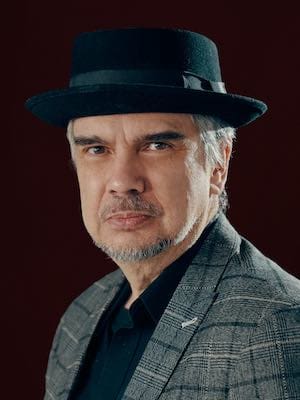“U.S. exceptionalism” has become neo-conservatives’ justification for foreign policies that would be condemned if other nation-states implemented them.
The rhetoric that proclaims the United States as “the greatest country on earth” permits the suspension of ethical and moral imperatives used to keep other countries in check.
Furthermore, it develops an arrogance that prevents constructive dialogue on how to create a more just and liberating global order.
The modern-day jingoistic proclamation of American exceptionalism (as one usually hears in chants like “We’re Number One!”) is but the latest manifestation of the previous generation’s white supremacy. Only now, this white supremacy is also being adopted by people of color attempting assimilation.
A previous generation of Americans considered it a birthright, due to their whiteness, that those who fell short of the white ideal would work and sacrifice for the benefit of all whites.
Jim Crow, and slavery before it, maintained that whiteness provided certain benefits and privileges not available to non-whites.
Likewise, our present discourse concerning exceptionalism maintains the operation of American supremacy – benefiting and privileging “real” (read mostly white) Americans.
The world and its inhabitants are at the service of the United States because of our exceptionalism. Hence, no one blinks at the fact that the majority of the world’s resources flows in our direction to support about 6 percent of the world’s population.
Politicians who use the term “American exceptionalism” are the stuff of empires, and they have no place among a people claiming democratic virtues. Claiming exceptionalism for any nation-state means that normative, global, ethical rules of order and conduct do not apply because exceptionalism implies moving beyond good and evil.
Hence, neo-conservatives are averse to being part of international organizations like the World Court or the United Nations. We do not have to play by anyone else’s rules because, the logic goes, “we are the shining city upon the hill.”
Ironically, U.S. exceptionalism doesn’t come in being No. 1 – but in last place when it comes to Americans’ quality of life. Rather than chanting “We’re Number One,” we would be more accurate if we shouted “We’re Number 33!”
Among the 33 countries with “advanced economies” as defined by the International Monetary Fund, the United States ranks 33rd in infant mortality rates. Besides having the highest infant mortality rate, Americans are also among those with the shortest life expectancy, ranking 28th at 78.24 years.
Additionally, we are among the nations with the largest income inequality, ranking 31st, with only Hong Kong and Singapore having greater income inequalities among their citizens.
When it comes to education, 80,000 of the 100,000 public schools fail under our own qualitative measures known as No Child Left Behind. (If we were to apply truth in advertising, it would more accurately be called Almost Every Child Left Behind.)
And yet, those who point out the incongruency between our claims of exceptionalism and the economic realities faced by most Americans are labeled unpatriotic. Failure to even mention the mantra of exceptionalism is portrayed by neo-conservative networks like Fox News as being somehow less than American.
However we wish to examine quality of life in 2010, there was nothing exceptional about the United States – except how poor Americans’ quality of life was when compared to other industrial nations.
The dismantling of the U.S. social safety net since the Reagan Revolution started dramatically widening the income gap and causing a downward middle-class spiral.
The dismantling of Roosevelt’s New Deal, which is responsible for lifting many from poverty to the middle class, contributed to a radical distribution of wealth.
Of course, the revolution continues thanks to neo-conservatives in control of the U.S. House of Representatives, many governors’ mansions and statehouses.
The cutting, if not eliminating, of social services and programs, the concerted effort to eliminate union collective bargaining, and the blaming of Muslims and undocumented immigrants for the nation’s woes are but the continuation of Reagan’s revolution.
Ironically, those who are being hurt the most by neo-conservatives – the middle-class – are the same folks responsible for electing the very people who are contributing to their economic insecurity.
Why would they vote against their own interests? There are many strategies employed to soften the touch of the iron fist. One is to wrap the iron fist in a velvet glove, a là Antonio Gramsci.
Another is to disseminate misinformation, like the concept that America is No. 1. Such rhetoric accomplishes two important tasks.
1. It masks the growing inequality as the elite few continue to enrich themselves at the expense of middle America through tax breaks, deregulation and the elimination of social services.
2. It allows the elite few to expand their wealth by imposing their supply-side economics on a global scale.
“Exceptionalism” may provide the moral, ideological and philosophical justification for neo-liberalism; nevertheless, the globalization of capital still requires strength to impose the will of the few upon the vast majority of the world’s population.
Hence, we need to be No. 1 in at least one area: our military, a necessity if we wish to continue the flow of resources to our shores to benefit an elite few.
Our military is by far the finest the world has ever known, the envy of any empire. For this reason, neo-conservatives are refusing to touch or consider military expenditures.
As Christians, we might be more faithful to the biblical text if we confess there is nothing exceptional about us. We all fall short of the glory of God.
And as such, we must be suspicious of any rhetoric that insists we are somehow special while masking collective political policies that cause more folks to be hungry, thirsty and naked.
Miguel A. De La Torre is professor of social ethics at Iliff School of Theology in Denver.
Professor of Social Ethics and Latinx Studies at Iliff School of Theology in Denver, Colorado, and a contributing correspondent at Good Faith Media.

